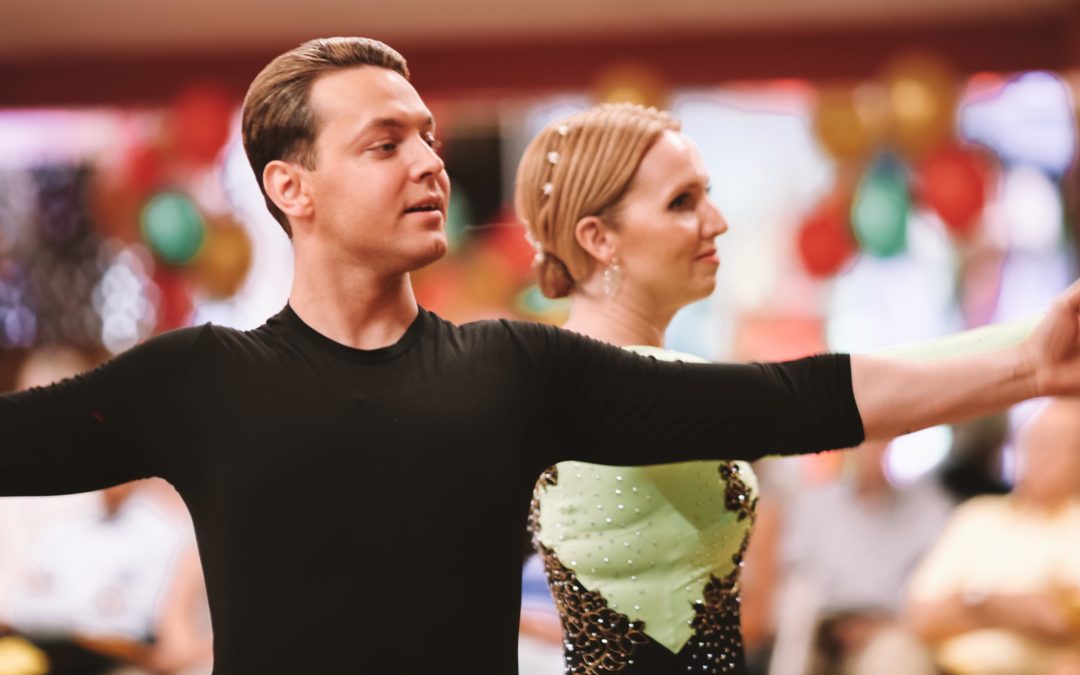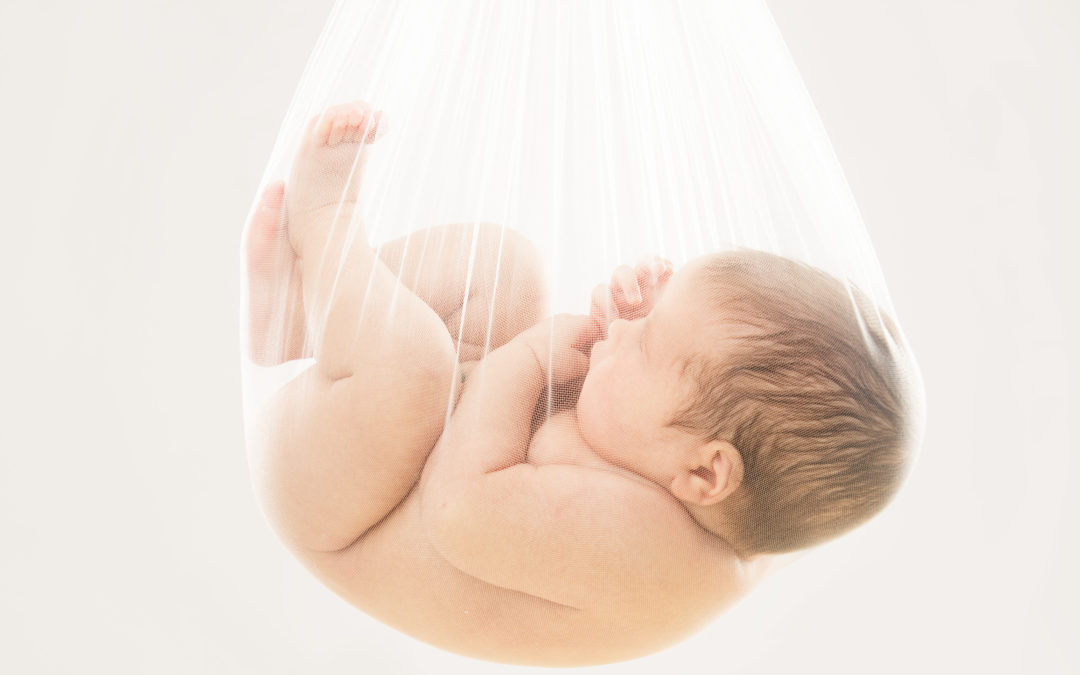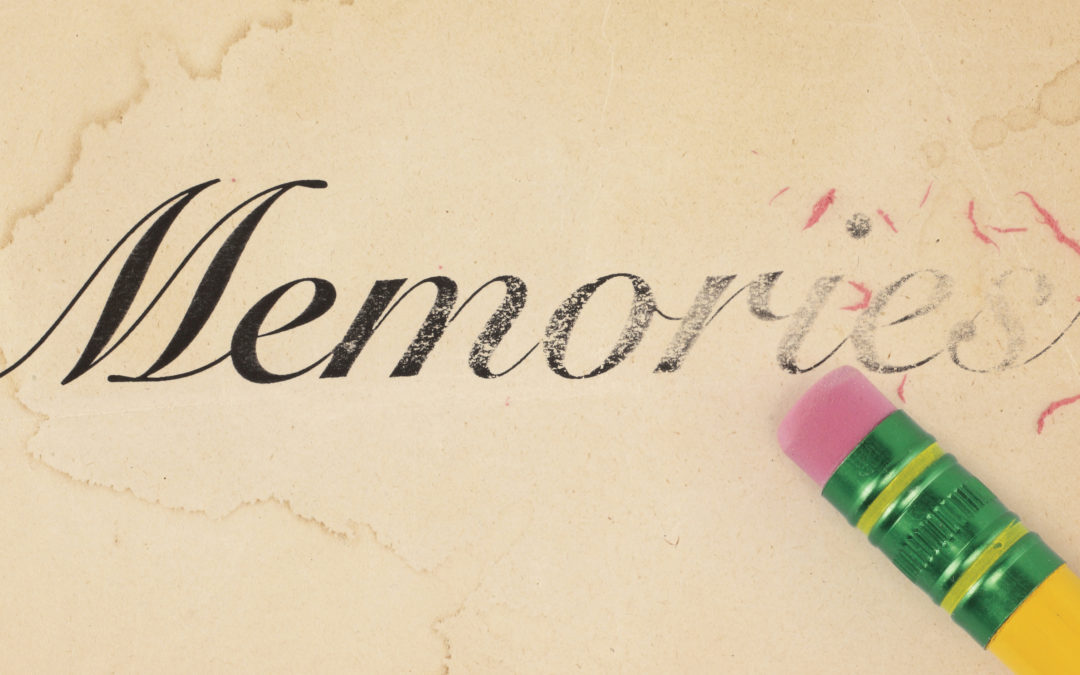
Waltzing Into Life
(photo courtesy of Fred Astaire Dance Studio Richmond)
I danced this weekend. For anyone who knows me well, this is not surprising. I have always loved to dance. I have taken ballroom dancing classes off and on since I was in high school. I will go out of my way to go to a swing or salsa night. Most of my life partners have been chosen based on their ability to dance (which has not proven to be the best approach). And I know that I am happiest when I am dancing. But there have always been problems with my ability to embrace ballroom dancing to the extent I want. My back scoliosis and overall posture were never good enough for me to get the true form I wanted. My heavy dissociation caused problems with my coordination and balance, making it hard to master some of the more complicated moves. And while I have always been able to dance well on a crowded dance floor, my overall fear of visibility and attention was never going to let me perform in one of those sparkly outfits in front of others. That was out of the question … until this weekend.
I picked up formal dance lessons again last August. I don’t know what came over me. I just knew intuitively that it was time. And the universe confirmed this decision by providing a brand new studio and the undying support of those who worked there. I started slow. My dissociation made it difficult for me to put the names of the steps with the actual movements. And with a week between lessons, forgetfulness was higher than usual. My instructors were patient though. They didn’t understand the trauma side of things, but they were kind. I went to see a competition. Honestly, I had no logical understanding of why I was there. I performed in a group dance with my studio and had a wonderful day. And I let them convince me to work on a showcase (a dance routine to my own song-choice to be performed in front of an audience). My daughter picked the song: Maleficent’s Once Upon a Dream. And we started to prepare a Viennese Waltz. I’ll be honest. It was terrifying.
We spent most of this time working on my balance and posture. And it did pay off. My spine and shoulders and neck made massive shifts (which also brought up memories and emotions I needed to process). I was able to memorize the routine and coordinate some complex moves after tons of practice. I even found a two-tone dress that would symbolize the duality within all humans, an ode to our parts. When I waltzed out on that dance floor, I am sure most people assumed this was easy for me. They probably decided that I had no problem with the visibility required for this dance. They may have assumed I was just one of those confident people who could naturally do this. They may have even wondered why I wasn’t a bit better based on all their initial conclusions. But honestly, this is a defense. When we want to excuse ourselves from doing hard things, we decide that these things were not hard for the person doing them. It is a classic defensive move and it keeps us small. In reality, I have spent the past year inundated by my defenders about this desire to dance. And today, I am going to share some of those messages with you because we need to know the truth. We are supposed to be terrified when we do what we want. These are the things I have been hearing.
Who do you think you are? Nobody wants to watch you dance. You aren’t as good as those other people who have been dancing for years. You will never be as good as them. Stop trying to be someone you’re not. You are not a dancer. You are just an uncoordinated average person. Quit being ridiculous.
You are wasting time. There are so many things you need to be doing. You are a single parent and you run your own business. Why do you think you have time for this stuff? You are supposed to be working. You don’t get to have fun. I am not sure why you think you get to have fun like that.
You are wasting money. Seriously. This shit is expensive. Quit spending all the money on frivolous things. The dress is expensive and you don’t even wear dresses. Why did you have to buy those sparkly things for your hair? These lessons cost too much. The competitions cost too much. We don’t have money to burn. It doesn’t grow on trees. You are being irresponsible. You should be spending this on your children. You should be spending this on marketing. Stop it!
You are too old for this. You look like a fool. You are a 46-year-old woman trying to dance in front of others. You are past the age to do this crap. This is for young people. You missed your window. It is over now. Act your age. Take up knitting or something.
You will never be the best. There is no satisfying end-goal. You are not going to travel to some international ballroom competition and get a big trophy. Others are so much better than you. Why would you want to do something if you can’t be the best? What is the point of that?
If you put yourself out there, you will draw attention from your abusers. I don’t know why they haven’t noticed you yet with all this stuff you have been doing on the internet, but you are asking for trouble with this visibility thing. They are going to find you. They will show up at one of these events and taunt you, embarrass you in front of an audience or make you mess up. You need to hide from them.
Every single one of these objections is a defense. They are based on the lies I heard when I was growing up. It is meant to keep me safe by keeping me small. It is based on the fears of living with horrific trauma. And it is very convincing until it is questioned. When I question it, none of it makes sense. I am not supposed to live life tied to my home, my computer or my parenting. I am supposed to live, really live. So the next time you come up with an idea that feels exciting and are suddenly inundated with all the reasons you cannot do it, write from them. Question them. Acknowledge your fear. Validate its existence. And do it anyway.

Breaking Through our Inner Obstacles
We live in a world that focuses on the external. We are consumed by the need for status, labels, money and approval. But we are missing the valuable information about what lies underneath this drive. At the foundation is the need to survive. And driving that need is the controller, the inner part within us that keeps us running away from ourselves and toward whatever society thinks we should be. They will flood the mind with plans to secure our external life, but they didn’t get this way on their own. They were inundated with nonstop threats and traumatic experiences. They had no choice. They had to survive. And this is how they did it. But we were never meant to be that way. And unfortunately, the controller problem is much more pervasive than we think. It is everywhere.
So we run around playing whack-a-mole with our external problems. We desperately try to make a life that others will respect or even envy. We try to keep up with the Jones’. But it seems that no matter what we do, life keeps throwing us the same patterns and cycles. The details might be a bit dissimilar. They might be dressed a little differently. They might have diverse characteristics. But in the end, it is more of the same. And we end up in a place of exhaustion and futility. We give up.
But what if I told you the answer was never in the external world. Don’t get me wrong, watching our external world can be a powerful way to bring an understanding of what really does matter. But in the end, the answers aren’t there. They are within us. Even when we see very tangible problems in the outside world, the seemingly unresolvable has a solution. But we won’t see it without an understanding of how we stop ourselves from seeing it. We must go deep within ourselves. I am not talking about the conscious mind. We already know what that says. We have molded it to say what we think we need to say. We have to go where we haven’t been. We must go to the unconscious and delve into what we are telling ourselves, the world, the universe. All the manifestation power in the world is stored in our unconscious. And until we go there, we won’t change things externally.
Not surprisingly, that is easier said than done. Why? We have defenders. And those defenders are trying to keep us from seeing what we need to see. They will tell us we can try to find that savior one more time. They will tell us we can set one more goal at school or at work or at the gym and this time, it will work. They will tell us that we just have to lose the weight, get the promotion or change to that new job. That will make our pain go away. But it never works, does it? The inner obstacles are stronger. We must build awareness of them to have a hope of moving out of our pain and into some peace. So let’s take a look at how the inner obstacles work.
They look for evidence that the past is right. Our defenders act like lawyers in a courtroom. If we were told we were unworthy in childhood, they will only take in the evidence that supports our unworthiness. They won’t let us see any level of worthiness the world is reflecting toward us. If we experienced thwarting of our success and happiness in childhood, our defenders will keep showing us how others are still trying to thwart us. They will ignore any support we may be receiving. They will heavily weight these events in the mind because they are in support of the wiring in the brain.
They paralyze us from the actions we need to take. While some of us don’t know our purpose because it has been blocked from our conscious mind, some of us have ideas of the direction we would like to take. But if we don’t believe we can attain our dreams, we will be unable to take the steps in the external world to make it happen. If we do take a step and are faced with difficulties in the external world, our defenders will use that as evidence to stay futile and to shut down any further attempts. They don’t understand that it is normal to face challenges. They will convince us that it is a sign and we should quit. That futility will keep us stuck even when we have a sense of where we would like life to go.
They change our energy. The law of attraction is often sold in a way that is unhelpful to trauma survivors. Positive intentions are not successful for us because the conscious mind does not manifest. But the unconscious mind does manifest quite powerfully. And when we hold the brainwashing from childhood in our unconscious, it blocks the energy that can attract the positive things we are looking for. As we release the unconscious beliefs telling us we can’t, the energy to attract it is unblocked. They go together. And they are powerful.
If we want to shift our inner obstacles and make room for new patterns, we must start by seeing them in our inner parts. We need to accept they are there, validate their perspectives, feel their pain and listen to their examples from the past. As we do this, we bring those unconscious beliefs forward and allow them to transform in the conscious adult mind. We can allow ourselves to consider other possibilities, different scenarios than what the unconscious past has always created. As we open ourselves up to these new beliefs, we will begin to see our external world shift. This is why we will be exploring how to break through our inner obstacles for the month of May in Survivor’s Guide. Come join us and learn how to change your external world from the inside out.

Letting Go
Our cat died this week. She actually passed on Easter Sunday. She didn’t pick the best day. After 14 years of life, she might have been a little more considerate than to choose a holiday. This isn’t about me though. It is about the kids. I was not her biggest fan. She was supposed to be my ex’s cat. He adopted her when we were together. And like everything and everyone else, she was left behind. She became just another symbol of abandonment. And she played the part well. She scratched up one piece of expensive furniture at a time. She had literal pissing contests with my dog ruining multiple rugs. She hated my kids when they were toddlers and refused to come inside until they were in bed at night. Whenever I watched a movie at night, she would need to come in and out of the house 25 times, usually during the best scenes. She never knew how to retract her claws which hurt … a lot.
My inner conversation about this was not good. There was a deep unconscious connection between this cat and my ex. She fueled my karma kid like nothing else. I was being punished by my ex for thinking I was strong and could raise the kids on my own. I was being punished by my ex for actually being strong and raising the kids on my own. I was being punished by my ex for not needing him even though he left me. I was being punished by my ex for not taking care of him anymore. Even after he died, I was being punished by my ex from “the other side”. To my karma kid, he had a hold on me even though he was gone. And this is typical for the karma kid. They really do see people as powerful in these ways. They are often told by abusers that they would always be bound to others and would be punished if they dared to think otherwise.
So I didn’t really like the cat. But I also knew it wasn’t her fault that she was crazy. And I knew she wasn’t really punishing me. I never gave up on her. I even brought her back to life once when she had a heart attack and died while sitting next to me. I performed kitty CPR which I didn’t even know what a thing. She revived, sat up and looked at me like, “What are you looking at?” She always had her food and her water (dripped from the faucet of course). And I look her to the vet despite the near death experiences with her claws. I would never give up on an animal. That’s not my style. And she grew to love the kids as they stopped grabbing her tail. And we even had our moments. Two nights before she died, I actually looked at her and said, “You’re really not that bad.” I think she appreciated it in her own way. She gave me a long, slow blink.
Maybe that’s what she needed. Maybe my karma kid had finally energetically separated her from my ex. And maybe, just maybe, I was able to let go of him (and apparently her) on a deeper level. I am not suggesting my recovery killed my cat. She was 14. For an outdoor hunting cat who never backed down from a fight, that’s a good life. I know I am not powerful enough to dictate her life and death. But animals are very tuned in to energies. They know their job and they know when they are done. They can let go, something most humans can’t do. We hold on and hold on and hold on to everything and everyone and every animal. We resist change like there is nothing good that could ever come from it. When in reality, it is our purpose to learn how to let go. It is why we are here.
I have worked hard to learn the art of letting go. It is a quintessential part of the recovery process. We can’t recover without it. This is why I am constantly preaching to my clients to grieve. Grieving is the most productive emotion we can express. It clears out connections that no longer support our growth. And it makes room for the new. In my case, I am letting go of my ex (and the 100 people he represents) so that I can make room for new friendships (and maybe more). And it is scary to let go of the way I have always defined myself. I don’t want to figure out life without all the old rules. There is too much to figure out. There are too many directions it could all go. But there is hope too. There are soooooo many directions it could all go. And that has an interesting ring to it. My freedom fighters think it could be cool. So I’ll keep working to let go. I’ll keep peeling off the layers of my ties to the past. I’ll keep ending my contracts that I never wanted to make. And maybe I’ll miss that cat a little too.

Team Self
I have been working through some huge resistance from my karma kid this week. They are feeling anxious about the direction I am heading in this life. They are convinced I will be punished for my newfound boldness as I explore what life really has to offer me. Believe me, I never really thought life had much to offer until the past couple of years. But that’s changing and I am happy with that. Well, most of me is happy with that. My karma kid is terrified. They believe I will take it too far and be dropkicked by the universe in the process. I get it. It was what they were taught. Since I returned from my trip to London and Paris, I have contemplated some bold ideas for next steps in life and business. And my karma kid has inundated me with resistance.
First, they have made me sick. It hasn’t been debilitating. I am still functioning. But it has definitely impacted my overall productivity. And that infuriates my controller. Next, they have brought in futility. They have tried to convince me that life will never be what I want it to be. They have tried to tell me I will never escape my role in my family. But it is getting harder and harder for them to convince me of that. I have seen too many changes. And then, the pièce de résistance came two days ago when they decided the fire at the Notre Dame Cathedral was my fault. If I had not shown up in Paris after being told never to go back, this would not have happened. My karma kid believes that death and destruction follow me wherever I go. And honestly, I feel bad for this part. The life of an unhealed karma kid is torture. They live in a constant hell of fear and futility and shame. And when we are enmeshed with a karma kid, we are in that same place.
But I have been on this road for a while now. And I see how this karma kid can make things look different than they really are. I am pushing past these things with a focus on all that is right in my current life and potentially in my future. I am excited about all my crazy ideas even if I can hear my karma kid’s fears about them. I can see my karma kid starting to shift. I can see a very muted optimism about the potential end to their jail sentence. I can tell that deep down inside, they want to believe. But moving past a karma kid has taken a ton of effort and learning. They are the stealthiest inner part. It has taken an awareness of my unconscious on levels to which most humans don’t care to venture. It is hard work and frankly, it takes guts. But that’s why you are here, isn’t it? You have the guts to do this work. So I wanted to share some of the most common beliefs I have uncovered from my own karma kid so that you can look for them too.
I don’t deserve that thing I want. This is one of the most common shame-based beliefs for a karma kid to hold. They believe this because of how many things they were blamed for in childhood. They are often blamed for their own abuse. But abusers don’t stop there. Karma kids take the blame for other actions and emotions coming from the abusers. Karma kids will be blamed for an abuser’s anger. They will be blamed for random occurrences (think Notre Dame fire). They will be blamed for mistakes by others. They will be blamed for bad luck. And they will take on all the shame associated with it.
I am going to be punished. Abusers made it clear to the karma kid that any steps outside of the expectations would be met with punishment. They taught the karma kid to see random events as punishment. Anything bad that happened was the karma kid’s fault. And if something bad happened to the abuser, it was because of their association with the karma kid. So the karma kid was trained to look for punishment from every person, animal, rock and the universe as a whole. And they live in fear because of it.
I can’t live the life I want. Karma kids sign contracts with abusers. Maybe they don’t literally sign something (maybe they do). But they come to understand their life as a contract. They have a certain role and they are not permitted to consider life outside of it. If they do, they will be punished. If they do, they will fail because they are not worthy of it. So there is no point in trying. There is no point in reaching for the stars when they are mired in the quicksand. They are not meant for anything more than what their abusers assigned them. And they are inundated with futility because of it.
But our karma kids are not correct in their understanding of life. They have been brainwashed by people who are abusive and jealous and nasty. The source of their information is not credible. We can teach our karma kids to trust a new source and that is us. The grounded adult self knows the way forward to our best life. It can be more than our minds can fathom. But first, we have to help the karma kid find their way out of the muck. We need to free them from their jail cell. We need to help them see there is a new team to join. We need them on “team self”. That team is going places. And those places are amazing.

Lost on Vacation
I took a vacation last week. It was an epic vacation. I was brave. I went to two of the busiest cities with two of the most energetic kids. It wasn’t about relaxing. It was about experiencing. And we certainly did that. We did amazing things in both London and Paris. We saw shows, we visited sites, we ate lots of food, we shopped (a little), and I even met some of my clients. The kids handled the busy train systems with grace. It was a very good week. But not surprisingly, my parts were battling it out. I say it wasn’t surprising, but I was hoping it wouldn’t happen. I was hoping for one week without any recovery work. Even after all this time, even now that the work isn’t as overwhelming as it used to be, I still wanted to put the writing away for one week. But that wasn’t meant to be. The messages that came through on vacation were not new, but they were intensified by the situation.
It all started with a flashback in Paris. And I guess I could have expected it. If there is one thing I have learned about recovery, we tend to have trauma around our favorite things. There are blocks to our purpose. I am not suggesting that my purpose is to be a professional tourist (although I would consider it if the logistics worked out). But I do see travel as a part of my work and life. I am just too invested in people and cultures. I truly am a sociologist at heart, even with all my psychobabble. But I digress.
The flashback sent me spinning for a couple of days. Apparently, I was not supposed to return to Paris because of a contract with my father from 30 years ago. I am quite proud of it really. We were staying in a hotel and I knew he would try to come in my room. At this point, I was 15 and wizening up to his strategies. So I changed my room key. When he tried to come in, he was locked out. He pitched a fit in the hallway and drew attention from the employees of the hotel. Apparently, this scene he caused (which was of course my fault) made it impossible for us to ever return to this city. Yet here I was. And the anxiety was palpable.
I wasn’t able to move out of it until we left Paris unfortunately. I figured it out as soon as I hit English soil. It was frustrating. My freedom fighters wanted to have fun. My controller was using their normal strategies to prevent a disaster. And the result was unrest. And now, the battle was waging in my system. All the parts were angry. And I was just trying to have some damn fun. There were two messages I heard loud and clear.
I should be able to have a vacation without recovery. I could hear my controller loud and clear. They were furious. “I never get a break. It never ends. I just wanted a week with nothing to process. I should be able to have that. I work hard. Where is my reward? Why can’t this be my reward? I’m going to quit recovery because I am angry with the universe.” And I got it. I felt it. It made sense. This work is exhausting. But let’s face it. Outside of these travels, I have created a safe life. My freedom fighters would even call it boring. Triggers are as minimized as they can be with two children at home and a trauma recovery business. There is no more likely place to bring trauma forward than when everything changes. I get it … in theory.
I want to escape no matter what it takes. I could also hear my freedom fighters loud and clear. And they were furious too. “This is my chance. I can run. I can escape. I can get away from life. Nobody will ever find me here. I can live life to the fullest without all this responsibility. It will be different here. It will be better here. There will be no pain and only fun. I can finally be myself.” And I do know the feeling. I do know that my entire early life was enslavement. And I get that being a single parent can feel like a prison some days. But life doesn’t get easier when we run away. One of the best pieces of advice I received before I started this deep recovery was from a friend and co-worker. He said, “Elisabeth, you can’t escape yourself.” And he was right. But my freedom fighters want to try. Life isn’t about escaping. It is about shaping it to be what we want. That might seem harder at first glance. But when we realize that there is no escape from the one thing we want to escape, we can acknowledge there is no choice. We must make our lives instead of running from them.
So I am back from vacation with greater insights about who I am and what I have been through. I also had a good time running around a couple of great cities. And I recognize the importance of what all my parts brought to the table last week. We will find the balance we need to create the free life we deserve. And I know it will feel like a life we don’t need to control or escape from. I know I am stepping closer to that life every day.

It’s Not All About You
We heard many confusing statements when we were children. Let’s face it. Our entire environment was incredibly confusing. We didn’t know what the rules were. We weren’t supposed to know. Our abusers wanted us to feel unsure about our reality so we would not fight back. And it worked. Our role in relationships was the most confusing. From some perspectives, it seemed like we were very important. We were responsible every time our abusers felt an emotion. We were in charge of making sure everything was perfect for them. We were told our abuse was our fault. That was so much control. It was too much control. We couldn’t handle it. But simultaneously, we seemed to have no value at all. We were nothing. Our opinions didn’t matter. Our needs weren’t important. Our emotions weren’t allowed. We were non-existent. The difference was too much to reconcile for our child minds. So we stored these very different understandings within parts of self.
In adulthood, that created problems. It has left us grappling with the truth. We have attracted the wrong people and have been unsure how to navigate the responsibility and worthlessness reflected by these relationships. We don’t have boundaries. If we do, they aren’t respected by others. We try to save and rescue others because we believe we are responsible for their pain and struggles. In the end, we are blamed for things that cannot possibly be our responsibility. And we are told we are selfish when we have spent every minute trying to appease the other. This is the life of the co-dependent. These cycles create overwhelm leaving us with only one choice. Isolation.
But maybe what we are doing is selfish in some ways. We are trying to fix another person and put them in the box we need them to be in. We want to fix our childhood relationships by repeating them with a happy ending. And we desperately want this person to be the one who finally takes away our pain. Maybe if we just work hard enough, they will finally get it and do the right thing. But they never get it, do they? And they never will. They aren’t meant to get it. They are meant to be yet another reminder about our need to look inward for resolution. We need to find our unconditional love by healing our need for the wrong kind of love. We need to find our answers by undoing the self-erasure and living authentically. It is only when we recognize just how amazing we are and stop caring if anyone else gets it that the unconditional love comes from others. That is the unfair, terrible and stupid truth of this life. But any other choice will simply take us for another spin. If we spend our entire lives making it about every other person in the world, doesn’t that turn us into a pinball bouncing all over the machine of life?
When I was in childhood and early adulthood, I spent a lot of time trying to find love by forcing others into the box I made for them. I just knew I could create the perfect solution to my years of unexpressed grief. Not surprisingly, it never worked. I was confused when people would say to me, “It’s not all about you.” I thought I was making it all about them. But in reality, I was making it all about fixing them. And my help was really control. I really did want them to heal me by being the right person and making the right choices. It was all about me in that way. I was being selfish. But these past few days, I have been asking myself some questions. What if it is all about me? What if my entire life is completely about me? What if it is about my purpose? What if life is about my power to heal my trauma and change my life? What if others really do come second? What if having a life that is completely about me is the only way to make any difference in this world for anyone else?
This is not a popular opinion. I get that. We are taught to be selfless. We are taught to make life all about others. But that doesn’t eliminate our needs. And that’s how we end up in this co-dependent mess. So maybe another approach is needed here. Maybe we need to meet our needs so fully and authentically that we have no choice but to shine for others. Maybe we need to throw the self-sacrificial rules out the window. Maybe we need to be so selfish that we are labeled irresponsible and weird. Maybe it is okay if people roll their eyes at us when we are excited about our life. Is their jealousy really about us? Of course not.
I have understood in recent years that my life is more about me than I thought in childhood. I have come to understand my importance to myself. I have learned that if I want something in life, I have to give it to myself. Nobody else is going to do those things for me. And I am being unfair to ask it from them. But it is starting to occur to me that I am not taking it far enough. I have to throw out the rules and the contracts and become completely unapologetic about meeting my own needs. I need to give myself everything I have ever wanted. I have to reject the notion that it matters if other people find it “over the top”. This has to be my life. And in the process, I will teach others to live their lives. And that is the most selfless thing I could ever do.

Saving the Truth-Tellers
My son was bullied yesterday at school. He’s in middle school which is the worst time and place in my opinion. Kids are cruel at this age. And kids are also desperately trying to fit in. This is a recipe for disaster. I have learned that it is a really good idea to watch middle school kids closely. You never know what ideas they are going to come up with. You never know what they might say. You never know what they might do. I would even go as far as to say that incidents of middle school bullying are inevitable based on how children are raised today. And while that makes me sad and frustrated, there is a much bigger problem with this scenario. This bullying came from an adult teacher.
My son was out sick for a week recently and he has been catching up on his work. I had to push him multiple times to get him to follow up with a particular teacher about his make-up work. He made it clear he felt intimated by her. And even from my standpoint, I have noticed her lack of tolerance for some of the kids and their age-appropriate behavior. But when he asked about making up the work, she made up a story about how it wasn’t because he was absent for illness. And then she told him to sit down, do his work and be a man.
When he told me this, I was dumbfounded for so many reasons. I’m sure I don’t need to tell you that. I was frustrated she wouldn’t want to help him with his grade, but I have also seen this apathy before. I was disturbed that she would try to hand my son a new story about his reality. I have seen that far too much in my abusive family to be okay with that. But I was most concerned about her statement, “Be a man.” This one is particularly infuriating. What does it even mean? Is he a man if he doesn’t do his make-up work? Or is he a man if he doesn’t bother or inconvenience her? What makes a 12-year-old boy into a man? Oh that’s right. He’s NOT A MAN! He is a boy and he needs support in his educational experience. He needs support in life. And he doesn’t need to be shut down by traumatized adults who get their kicks out of bullying kids.
We have to stop this pattern. We have a childism problem in this world. And we have it for a calculated reason. Kids are treated like they don’t matter because they are truth-tellers. They are the most likely to question the convenient reality we have created. We have set up an entire system to squelch their voices, their creativity and their truth. And in the case of abusers, this system is incredibly malicious. But there is a problem with stopping this cycle. Once we have been programmed with intolerance for our own inner children, we will tend to project this intolerance on to other children (especially our own). To stop it, we must bring awareness to the patterns that are not okay. We must find our own self-compassion toward our inner children. And we must shift our mindset about the priority of children in this world. If you are concerned you might be a part of the problem, here are some questions you can ask yourself.
How am I emotionally squelching my own inner children? It is incredibly common for trauma survivors to minimize their own emotional reactions to their experiences in the past and present. This has been a pattern for their entire lives. We have to recognize how we are invalidating our emotions by saying they are over-reactions or calling ourselves overly sensitive. If we are squelching our own need for expression, our unconscious instincts will make it impossible for us to hold compassionate space for the full emotional expression coming from a child.
How am I afraid of the truth? When we grow up with trauma, we try to tell the truth, but we experience gas-lighting and manipulation to tell the convenient story. The convenient story is the masked story the adults want everyone to support. And we build up defenses to continue that effort in our adult lives. When a child comes along and mirrors that forbidden story (and believe me they will), it can send our defenses into a panic. Our unconscious instincts will move into “shut this down” mode. So we have to address how we are lying to ourselves so we don’t stop the truth.
How am I prioritizing the external world over connection? When we were children, we were seeking connection with adults. But the adults had already been taught that they needed to keep their focus on the external world and finding success per it’s standards. Our needs were considered unimportant. Our needs were minimized. And now, we minimize those exact needs that were never met. We tell ourselves they aren’t real needs. They are silly. They don’t matter. And when a child comes to us for connection, our unconscious instincts will not allow it, at least not on the level it is needed.
If we want to change this world to a less traumatized, violent and abusive place to live, we have to look at how we are treating our children. And if we want to change how we are treating our children, we have to look at how we are treating ourselves, especially those deeply unconscious parts of self we pushed away. It is time to wake up and stop invalidating ourselves and the children around us. Let’s get busy doing the hard work it takes to stop this cycle for good.

My Birth Story
There is one thing I know about mothers. When we get talking about our birth stories, we can talk all day. Part of that is the intensely pivotal aspect of the experience. It is responsible for introducing us to the love(s) of our life. But there is another side to it. It is often a highly traumatizing experience. It is invasive in every way. Our boundaries and rights fly out the window as soon as we enter that hospital. It too often becomes a medical procedure with little respect for anything the mother may be experiencing. So talking about our birth stories becomes a way of healing the trauma of it. Since we weren’t heard during our experience, we need to be heard afterwards. That’s why I never interrupt a mother talking about her birth story.
Interestingly, I have never written about mine on my blog. Initially I thought that was weird, but maybe it felt too vulnerable. Maybe I never processed it. Maybe I didn’t want to be judged about it (but that has rarely stopped me). I have come to understand my birth story as a retraumatization in so many ways. But while I was experiencing it, I didn’t know it. I was completely shut down. And unfortunately, I think that has been the case for many survivors of complex trauma. We don’t know we are being retraumatized, so we think everything is okay. But it’s not okay. So I’ll share my story with you today.
My sexual trauma was severe. It started at a very young age. It may be obvious that I had many difficult fertility issues standing in the way of getting pregnant. Even though my anxiety and depression were a problem, I saw these physical issues as much more debilitating because they were a constant reminder that something was wrong with me. And that was always the message when I was growing up. My vulvodynia made sexual intimacy and doctor’s visits extremely painful. And my amennorhea was so severe, I could not get a period without medicine. There would be no way to get pregnant without medical assistance. But I got lucky. My ovaries went crazy in the first month of fertility treatments. They went so crazy, I was in pain. I suffered with ovarian hyperstimulation syndrome which made me look 4 months pregnant. But as long as my uterus cooperated, pregnancy was highly likely, maybe a bit too likely. After some miscommunication between the doctor’s, I was given the green light to try. To everyone’s shock and dismay, I became pregnant with seven embryos. There was panic all around me. But I felt nothing.
I was referred to a perinatologist. We sat in his office planning what to do next. He showed me pictures of a cat’s uterus and compared it with a human’s uterus. He explained why humans can’t have “litters”. He explained I didn’t really have the “body constitution to support extreme multiples”. We spent most of our time examining the risks in having triplets versus twins. I was shocked to learn there was a HUGE difference. We waited until I was 14 weeks. Honestly, we were hoping a few might pass on their own, especially the little one. But no. I was inundated with hyperemesis gravidarum. I couldn’t hold down much food. But nobody left. They all hung in there. And at 14 weeks, I underwent a reduction to twins. The doctor said I was a “stellar” patient. He had never worked with someone so calm about the whole thing. A few weeks later, we found out we were having a boy and a girl. Everyone was ecstatic. But I felt nothing.
I was high-risk with twins at 34 years old. I went in for my ultrasounds every month (and eventually every week). I did all the things I was supposed to do. I struggled with the calorie intake and anemia. But the twins were growing. My obstetrician and I planned a C-section for 38 weeks because even before my memories came back, I knew something was severely wrong with my vulva. She knew it too. She was good that way. She was from east Germany and was matter of fact about these things. I liked her for her frank truth-telling. When my mother asked why I picked such an “opinionated” doctor, I asked who else she would want protecting her interests during a medical procedure. That shut her up. And the twins kept growing. I started having contractions at 32 weeks and wound up on house arrest. Everyone was a bit panicked. But I felt nothing.
At 37 weeks, my daughter was done. My water broke and we rushed to the hospital. She was coming so fast, we almost missed the window for the epidural. I had a horrible anesthesiologist who questioned our birth plan in a very disrespectful tone, but just like I planned, my doctor shut him down. Unfortunately he jacked up the drugs too high, so right after I saw the twins, I passed out and woke up vomiting in the post delivery room. When I finally recovered enough to be coherent, they told me the twins were smaller than was expected. My son was 4 pounds, 9 ounces and my daughter was 3 pounds, 14 ounces. A version of my worst nightmare was happening. My daughter was sent to the PCN and my son was sent home with me. For ten days, I tried to visit one newborn in the hospital while I had another newborn at home. It was exhausting and painful. Everyone asked me how I was handling it so well. But I felt nothing.
After all the chaos, my wake-up call finally happened. I was sitting at home with my son a few days after coming home from the hospital and we were looking at each other. Even then, he was trying to tell me something. I could see it. He had a story to tell from the moment he was born. I looked at that adorable face and he look at me for a long time. BUT I FELT NOTHING! That wasn’t how it was supposed to be! This wasn’t what I had been sold! There was nothing! And in that moment, I knew something was drastically wrong. Twelve weeks later, I made my first therapy appointment. And I now know why I felt nothing. There was so much pain behind that wall. But I have learned to sit with my emotions. I no longer feel nothing. My children taught me to feel. And for that, I am forever grateful.
Their birth story became my birth story.

The Loneliness in Freedom
I have been working through some contracts with my family of origin lately. I have some very scared inner parts who believe that breaking these contracts will lead to an extremely painful life or even death. And they are pushing back with sabotage, insomnia, physical illness and an onslaught of nasty inner dialogue. I am doing my best to stay patient even though I don’t have time for illness and paralysis. Honestly, what choice do I have? I want to be free of these contracts. I have to be free of them to live my best life. So I will go through the process of breaking them no matter what. Over these years of recovery, I have learned it is the only way.
Before I reach a new phase of this work, I usually believe I have already processed it. And it’s true. But now I am going deeper. After I go deeper, I can usually see how I wasn’t done before, but only in hindsight. It is frustrating to work with the unconscious in that way. We often don’t know where we are going or how many more times we have to go there. But I do know we are never going backwards. If I can keep the faith, the process takes me where I want to go. Of course, the idea of having faith in anything after my childhood is a bit ridiculous. But once again, what choice do I have? I want to be free of these contracts.
As I break these contracts, this recovery work has opened my eyes about my abusers and others in the world. They don’t relate to me in the way I thought they did. My abusers confused me about how life works. They made connections that were never there. They implied an interest in me that was much different than it was. And my realizations have left me feeling relieved, but they have also left me feeling quite lonely. To be fair, I will take this lonely feeling over any of these contractual obligations I was forcing myself to uphold for my abusers. But it does take some getting used to. Let me share what I have discovered.
People aren’t that interested in what I’m doing. I don’t need anyone’s approval for any decisions I am making in my life right now. If nobody approves, that’s okay. I can still do it. If I fail, I fail. If I succeed, good for me. If I really succeed, I might get a few social media likes. People might even shake my hand or give me a pat on the back. A few might raise their eyebrows because they never thought that would work. But let’s face it, they have their own stuff to deal with in their own chaotic (and somewhat scary) lives. So they get back to it. The good news: they aren’t scheming about how to destroy my success like my family was. The bad news: they aren’t giving me a ton of head space either. This isn’t meant to be a horrible thing. It is just the truth. It doesn’t apply to spouses or business partners in the same way. And it doesn’t mean others don’t consider or think of me. But they aren’t out to get me and they aren’t picking apart the details of every action I take. They don’t have time for that.
People aren’t reading my mind. Nobody knows what I am doing unless I tell them what I am doing. I know you are thinking this is not a genius statement right there. But when we grow up with abuse, we become paranoid. Our abusers are overly interested in us because controlling us is top priority. And they can do a good job convincing us they are capable of reading our minds. But if I contemplate a hundred really bad ideas in my head, nobody else knows. Even if I write out plans for twenty of them, nobody else knows unless I share them. I am the creator of my own life and nobody is involved unless I make them involved. I have the power over what I think and create. But there’s bad news. If I need help, I have to ask for it out loud.
People aren’t coming to save me from my life. This one is hard for my inner children to hear. If nobody is interested enough to try to sabotage my life, that means they aren’t interested enough to save it either. They have their own lives to save. They aren’t going to pull me out of the messes I create. I am not suggesting that people won’t help me when I am stuck. But I cannot expect others to care about my life in the same way they care about theirs. They cannot put all their energy into my problems and they shouldn’t have to. If I want a really good life, it is my job to create it. If I don’t create it, I won’t get it. If I am waiting for anyone to give it to me, it will be an endless wait. And while it is not good to have people overly invested in you, it can sometimes be hard to accept that our savior isn’t coming.
So freedom comes at a cost. We lose the belief in a superficial connection that wasn’t really there. But the belief in that connection has kept us from our biggest, most authentic life. That means we have to get lonely for a while. How long? I don’t know. It has to be long enough for us to connect deeply to ourselves. Once we do that, we will find the connections that make our lives bigger and better, not more constricted. And we will sense the deep energetic connection across all humanity. Only then can we find the freedom AND connection we were meant to have.
Caveat: This blog post is about people in general. This is not describing past or current abusive relationships which are the source of these beliefs. If you are being controlled by your family or spouse, they may be far too invested in you. They may be trying to control all your actions, prove to you they can read your mind or convince you they are your savior. These are people to move away from as soon as possible.

Three Myths about Repressed Memories
When it comes to trauma recovery, there is nothing more controversial than repressed memories. There has been endless pushback about their validity. People who have a vested interest in keeping memories repressed have employed psychologists and lawyers and other professionals to discredit memories and intimidate trauma victims for decades (if not longer). Unfortunately, these people have had far too much influence over the professionals and organizations who provide services to trauma survivors. So those of us who are the most risk of suffering the mental, emotional and physical consequences of complex trauma are faced with constant invalidation when we consider the possibility of repressed memories. And much of that invalidation comes from the people who are supposed to help us the most.
Why does this happen? There are a few reasons. First, people have been intimated by threats of retaliation if they encourage memory recovery. The primary threat has been career-based. They will be sued for defamation of character or for malpractice for planting memories. And of course, if people can’t do their job, they can’t make money and they can’t survive. It is so much safer to discourage such activity altogether. Second, they feel intimidated about helping people with repressed memories. Maybe they don’t feel capable of helping someone through the process. Honestly, that’s reasonable. But in that case, they should be ready with referrals. Third, they are repressing their own memories and they are projecting their own fears on to others. This is much more common than you think. Many people hold repressed memories and are afraid of the emotional impact of recovery. And this fear will be projected.
So we get stuck in limbo. We can heal from our trauma to a point. We can make some behavior changes. We can take some meds to calm the inner turmoil. We can learn to trust ourselves just a bit. But it isn’t the deep healing we know we really deserve. It doesn’t calm the inner war. It only masks it. And we are out of options. Or so we think. We can empower ourselves to work through our repressed memories with or without validation from others. We can learn to validate ourselves with the support and guidance of others who are recovering memories too. But first, we have to address our internalized myths about recovering memories. Let’s look at a few.
Myth 1: There is no such thing as repressed memories, so any recovered memories must be false. This is the most blatant myth. And it goes against everything we currently understand about trauma and dissociation. Interestingly, we are perfectly capable of accepting dissociative amnesia for war veterans. But when it comes to abuse survivors, we have decided that trauma must somehow affect the brain differently. And it makes no sense. Forgetting traumatic events is a normal part of coping. Real trauma experts will openly acknowledge this.
Myth 2: If a repressed memory is wrong, it could get the victim in big trouble. This myth is based on the threats so many of us received as children. As a young child, I was already aware of False Memory Syndrome and defamation of character. I also had been told that stories about abuse were usually lies. Why? My parents were setting me up to be afraid of my own truth. They knew what they were doing. So do many other perpetrators of child abuse. The fear of our truth runs high because of this. But we need to reframe the process of recovering memories. Allowing ourselves to explore our unconscious truth has nothing to do with anyone else. This is a personal process. If we choose to take legal action, that isn’t going to come without some corroboration because our court system is stacked in favor of the perpetrators. So for now, memory recovery is about the exploration of our truth. And if we get the wallpaper color wrong, it doesn’t matter. And if we get something big wrong, it will organically correct itself as we explore our unconscious more deeply.
Myth 3: People who are recovering memories are looking for attention. This myth often started with the invalidation from our childhood too. We learned that the truth was attention seeking so we needed to follow the script and protect the mask. Anything else was selfish, self-serving and somehow made us bad. But I have always said that if I wanted to make up a story about myself, it wouldn’t look like this. It would be such a nice story about love and beauty. And if I wanted to be famous for something, it wouldn’t be this. I would win a Nobel Peace Prize. Nobody I have ever met wants to bask in the glow of going public about traumatizing experiences while facing invalidation, ridicule and endless questions about the validity of their story.
If you are ready to take your trauma recovery journey to the next level by incorporating your own unconscious exploration, join me and other amazing survivors in Survivor’s Guide for Life starting March 1st. Finally find the validation you are looking for in memory recovery. And make progress you never thought possible. You don’t have to carry this trauma around with you. You can remember and free yourself from it.

